Today’s parents need advice more than ever, especially as we enter this new age of technology and all the fun (and terrifying) things that come along with it. When should your kid have a smartphone? What about sexting? YouTube? You name it, parents have dealt with it — or have done their best trying.
That’s why we’ve created an advice column that attempts to answer all of your most pining questions. Our first one answers six that relate to the recurring theme of technology, but we hope to address many more topics and concerns as the column progresses. Are you ready?
Social Media for Babies?
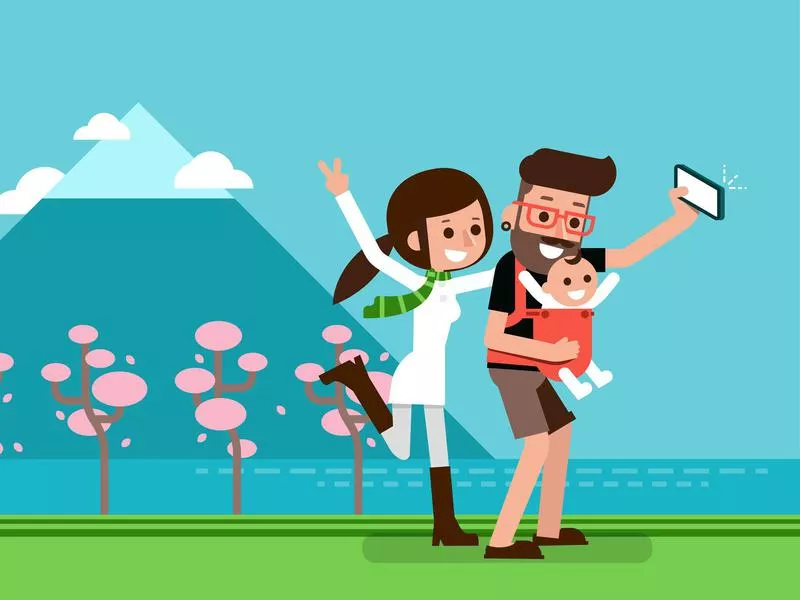
Getty Images
Dear FamilyMinded,
I recently gave birth to my daughter, and I’m so in love with her. My husband and I take endless photos of her, but I don’t want to be one of those moms who posts pictures of her kids to social media every five minutes. Some of our friends suggested creating an Instagram account for her that just our friends and family can follow, but is that weird? I feel like creating an account before she even has a say isn’t fair, but I also want to be able to update our family and friends who are very interested in seeing pictures.
Signed,
Overexposed
The Response
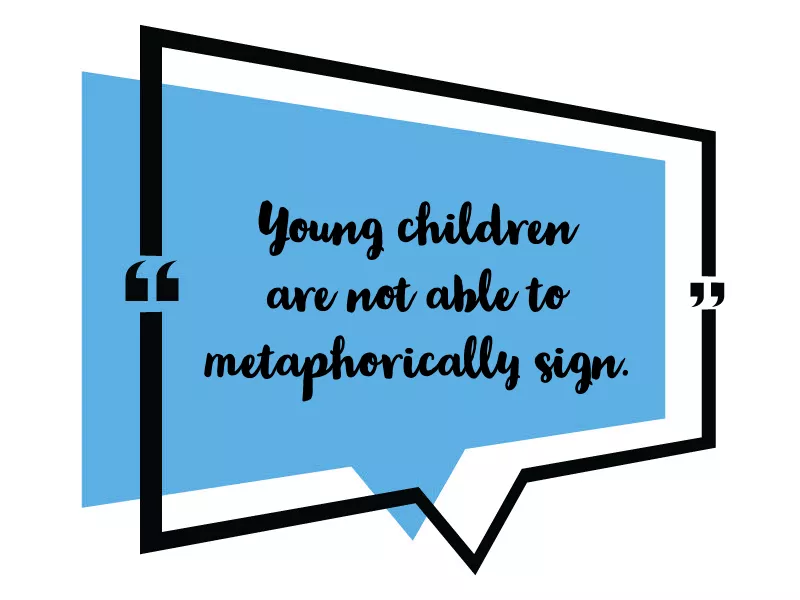
Dear Overexposed,
We are 100 percent positive that your daughter is amazing and adorable, and that your family and friends want to see a lot of her. That’s the wonderful thing about social media — how easy it is to stay connected and up-to-date with people you don’t see every day. But we hear your concerns, too.
Some parents choose not to post any photos of their children out of worry that people with ill intent will see them. Others opt out for the reason you alluded to: Young children are not able to metaphorically sign on the dotted line and grant consent to their likeness appearing on the internet.
Want to help kids reduce screen time and develop their imagination and creativity? Download Animopus from the App Store. Animopus is a drawing app for kids (ages 2 and up) that turns cartoon consumers into cartoon creators.
The Advice
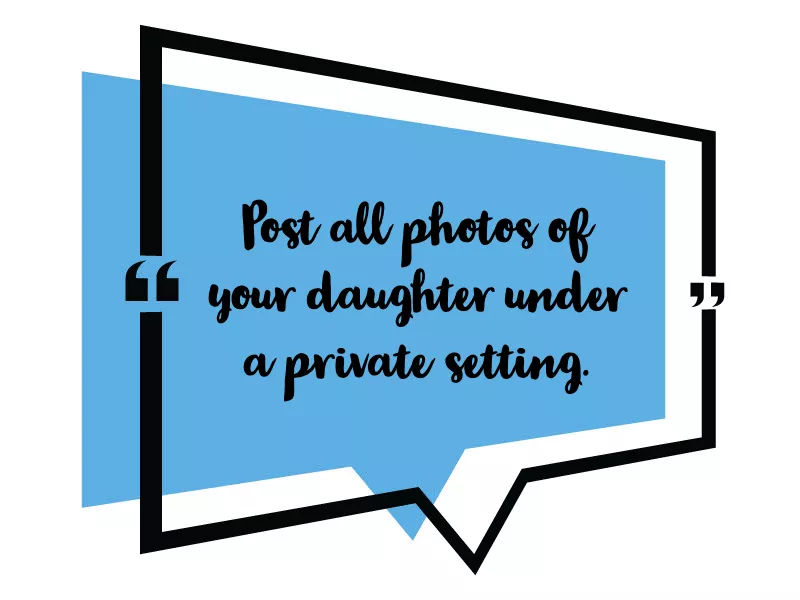
You also mentioned a possible workaround: Post all photos of your daughter under a private setting so that only your approved followers, i.e., friends and family to whom you grant access, can see them. Here’s a link to Instagram’s help page that teaches you how to do this. You don’t even have to attach your daughter’s name to the page or include any information that can be linked back (read: embarrass the hell out of her) in later years. For instance, you could call the account @worldssweetestsmartestmostamazingbabygirl, and her future college admissions board, spouse or boss will never be the wiser.
Alternatively, start an old-fashioned email list to which you attach a weekly photo update. The grandparents in your life might find that easier to navigate anyway!
You got this!
Love,
FamilyMinded
Is Sexting OK?
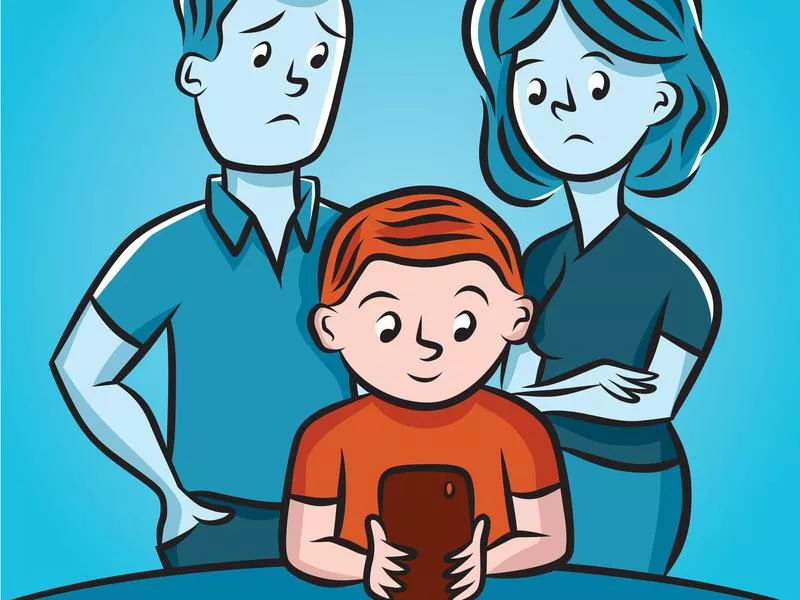
Getty Images
Dear FamilyMinded,
I caught my son sexting with a girl in his band class. There were naked pictures, and he’s only 13. After catching him, I asked him if the girl and him were dating and if the pictures were consensual. He said that they were, but I’m concerned and wondering if you have any advice on how to address the situation.
I know kids start becoming sexual at this age, but how early is too early? And should a punishment of some sort be involved? I told him that I wanted to discuss this matter further but that I needed some time to think more about it.
Signed,
Don’t Know How to Deal
The Response
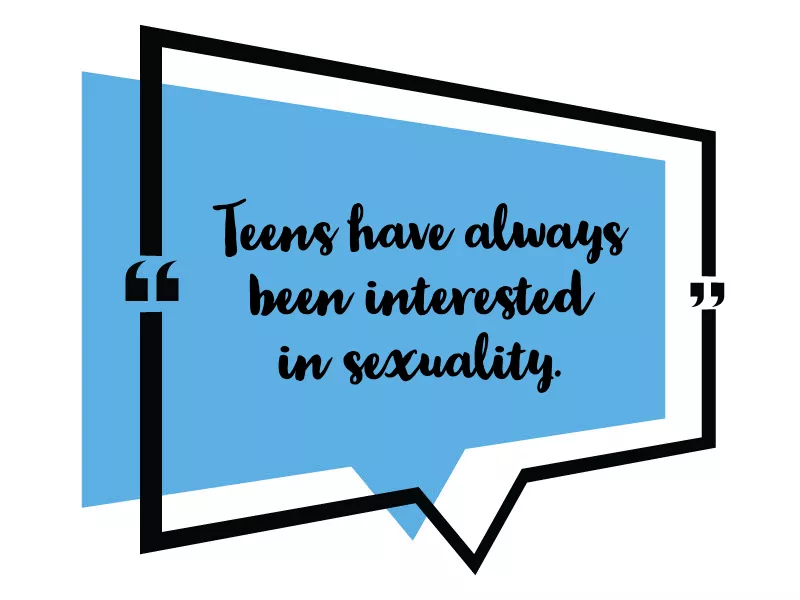
Dear Don’t Know How to Deal,
Your question is so relevant in today’s cultural landscape. We’re parenting in an unprecedentedly tech-dominated culture, but little about human behavior has really changed. To wit: Teens have always been interested in bodies, sex and sexuality, but today’s technology makes those natural explorations more fraught.
Let’s first take a look at the numbers. Your son’s behavior is not uncommon. As reported in the Journal of the American Medical Association, surveys show that 12 to 16 percent of kids aged 10 to 19 years have sent a sexual photo to someone else. So, yea, sexting among adolescents and teens happens. According to Bonnie J. Rough, author of “Beyond Birds and Bees: Bringing Home a New Message to our Kids about Sex, Love, and Equality,” sexting is not a sign that something has gone horribly wrong. There are cultures, like in the Netherlands for instance, where teen sexting is considered worthy of discussion in terms of possible risks, while not a strictly forbidden or stigmatized behavior.
But here we are in the U.S., where attitudes toward sex and sexuality are a little … shall we say, different? We understand that sexting may not feel like acceptable behavior from your 13-year-old son or from his friend.
The Advice
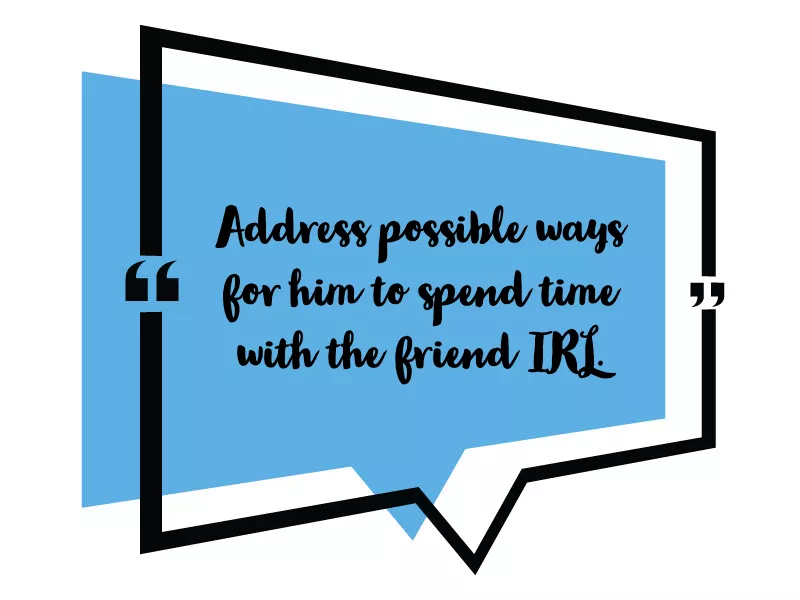
First, do your super-parent best not to overreact. Try not to make him feel like he’s in trouble or that you’re angry — even if you are — because shaming and blaming will only make him less willing to share his experiences or need for information. We recommend taking punishment off the table at this stage for the same reasons. Let him know that curiosity and exploration when it comes to bodies and sex is totally normal, and that he has a right to his feelings and his body.
Because teens’ brains are not yet wired to calculate the future consequences of today’s actions, it’s up to you to let him know what they are. It’s a fact that any picture sent digitally can get out to an unintended audience. No matter how much he likes or trusts the recipient, things can and do happen. People get into arguments. Couples break up. Other people can get a hold of phones. If the image isn’t something he’s OK with peers, teachers and parents seeing, it probably shouldn’t be sent digitally.
Next, how do you address the specific behavior without instilling shame and stigma about his natural interest in sex and relationships? Remember the classic redirect technique that we were told to use with our toddlers? It just might work here, too. Rough commented that sexting for today’s teens is an attempt at connection. Perhaps it’s a clumsy attempt, but if your son had better tools, he might use them. Here’s what you can do:
• Address possible ways for him to spend time with the friend IRL. You could offer to help facilitate a date that you’re comfortable with, like a trip to the movies or the beach.
• Encourage him to spend more face-to-face time with peers in general and to step back from screen usage while doing so.
• Remind him that it’s not OK to be pressured or to pressure anyone to sext, and that any photos of others that he possesses should never be shared with anyone else.
Remember, your goal is to set up your son for a future of healthy relationships, and the best way to do that is through open communication.
You got this!
Love,
FamilyMinded
Do We Need a Smartphone?
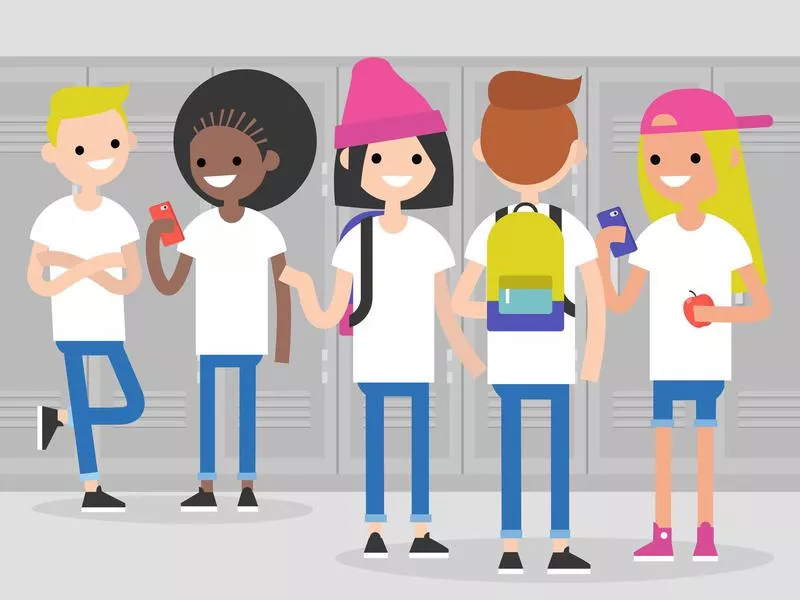
Getty Images
Dear FamilyMinded,
My son wants a smartphone. He’s 12, and I honestly don’t know if I’ll ever want him to have one while he’s living in our household. Yes, all of his friends have one, and he hates us for not getting him one — we get it. I just want him to be raised in an environment where he can entertain himself with other things, but then I also don’t want him to be seen as socially weird or awkward for not having one. Are we crazy? And how do we stand our ground on this?
Signed,
Just Say No to Smartphones
The Response
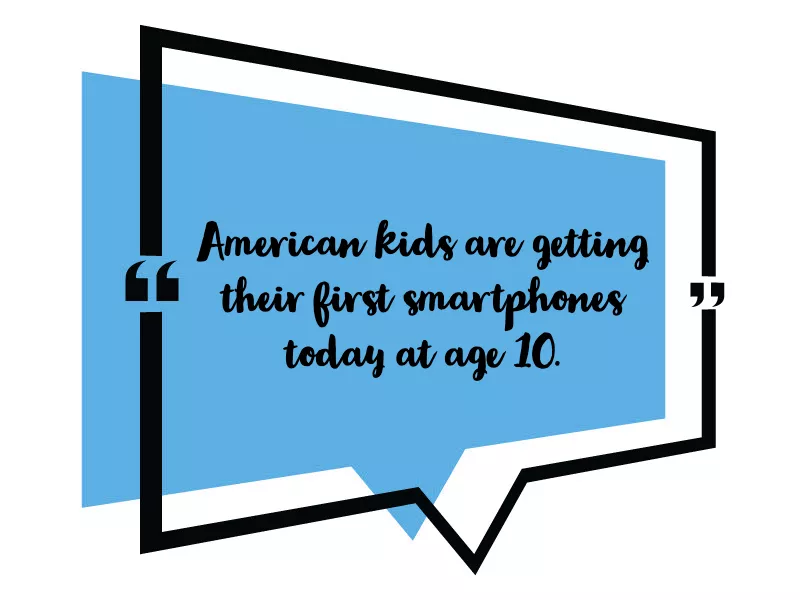
Dear Just Say No to Smartphones,
We only need a cursory glance around for evidence that adolescents vary quite a bit in their maturity and responsibility (read: readiness for a smartphone), and families are all over the map in terms of their acceptance of such devices. However, on average, American kids are getting their first smartphones today at age 10.
That may seem very early to you, Just Say No, but families have different reasons for supplying this kind of tech. Parents may be bowing to peer pressure, yes, but accessing learning apps and being able to communicate with one’s child while apart can also be important considerations.
The Advice
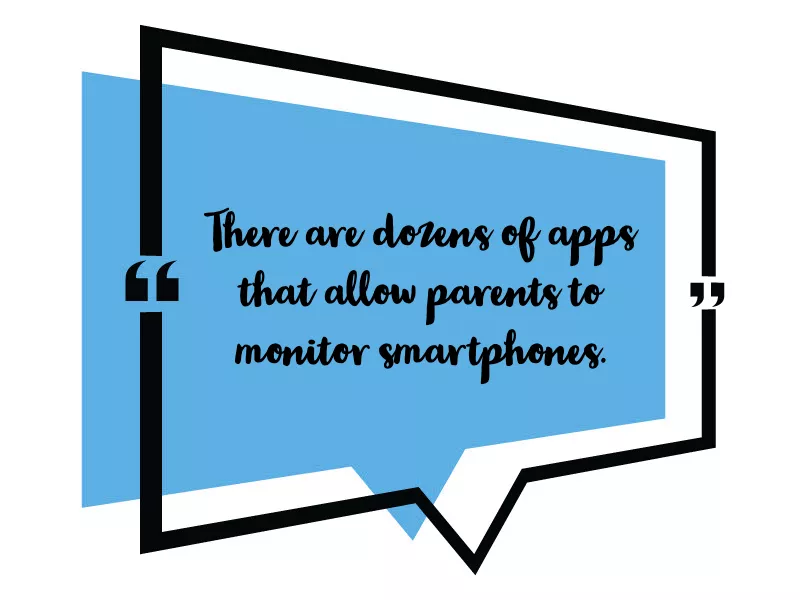
So, what is the ideal age to provide a smartphone? According to people who study adolescent brains and technology, your instinct is correct in that later probably is better. Smartphones, as you appear to indicate, can be addicting for anyone — young people very much included. We hear you that you want your son to be able to entertain himself offline. Smartphones can also cut down on face-to-face time with peers and family, as well as distract from homework and hobbies. Most distressingly, they can be a gateway to the darker side of the internet.
That being said, smartphones enable communication, and many tweens and teens do rely on them for at least part of their social experience. May we suggest that your family needn’t necessarily take an “all or nothing” approach to this tech? We get that you dread the almighty smartphone’s dominance over all of your kid’s waking hours. But there are dozens of apps now that allow parents to closely monitor their children’s smartphone activity — including what kind of content they can access and total time spent on the phone. You could cap your child’s usage at an hour a day or whatever increment feels comfortable, and take it from there. It’s our hunch that your 12-year-old will probably prefer one hour of smartphone use to zero hours.
You may also want to access the wisdom of your parent tribe for this question, Just Say No. Strike up a conversation with a few of your son’s friends’ parents, and ask them questions like: How did you know when your child was ready for a smartphone? Or, what kinds of limits and expectations do you place on your child’s smartphone usage? If approached in an open-minded and curious manner, many parents will be happy to share what’s worked for them and what hasn’t.
You got this!
Love,
FamilyMinded
How to Set a Good Example?
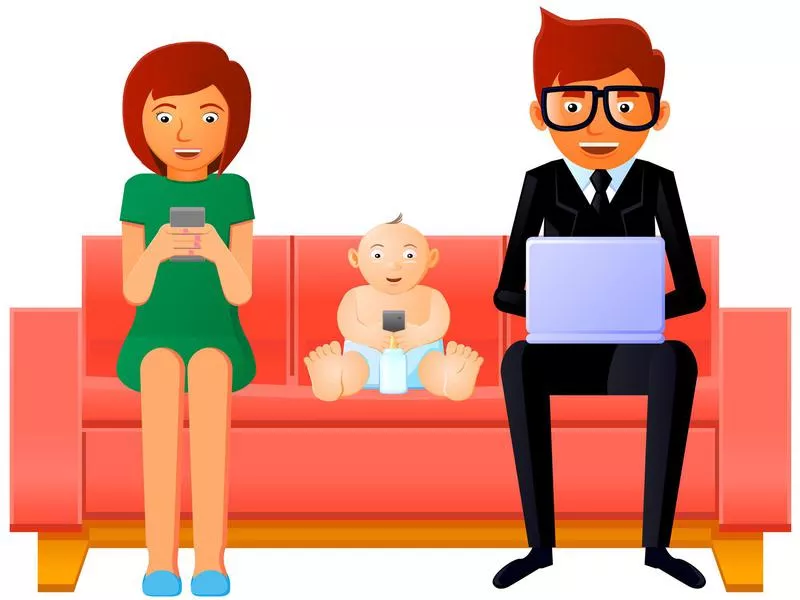
Getty Images
Dear FamilyMinded,
I’ll admit it. My husband and I are news junkies, always on our phones looking for the latest story. We’re expecting our first baby in September, though, and are worried about being bad influences on our child. What are some good practices to put into place now so that we’ll be better role models as our kid grows up?
Signed,
Addicted to My Smartphone
The Response
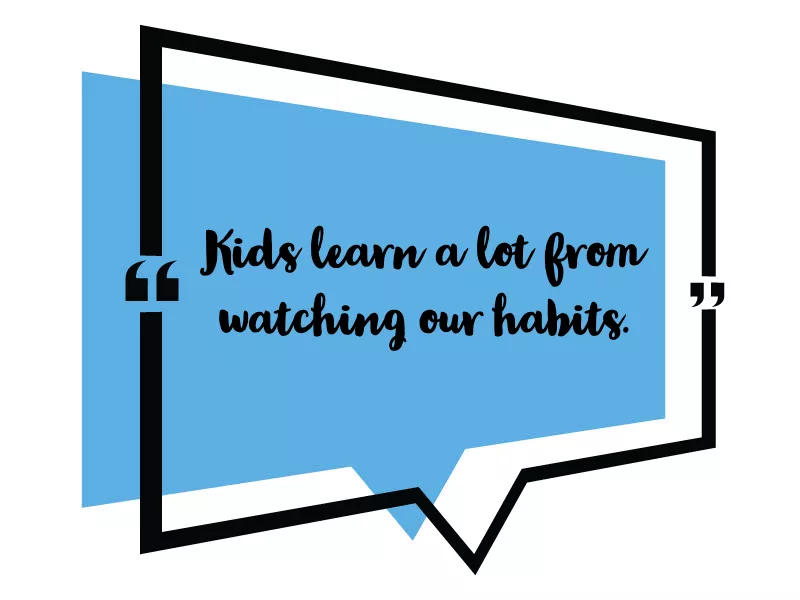
Dear Addicted to My Smartphone,
Putting limits on technology usage is utterly challenging for most of us. Some of the reasons for this include the fact that work often requires us to be connected and responsive even when we’re home, and — as you said — smartphones now grant access to the kind of information and entertainment that we could only dream of a handful of years ago. But you’re right that kids learn a lot from watching our habits and if you want to model a more measured approach to tech, now’s a good time to start. Kudos to you, Addicted, for being so proactive!
Just like with any kind of habit, you want to start changing slowly. A good first step might be for you and your husband to turn off your smartphones an hour before your own bedtime. Studies show that this will give you a better night’s sleep, which we can bet you’ll welcome during the last few months of your pregnancy.
The Advice
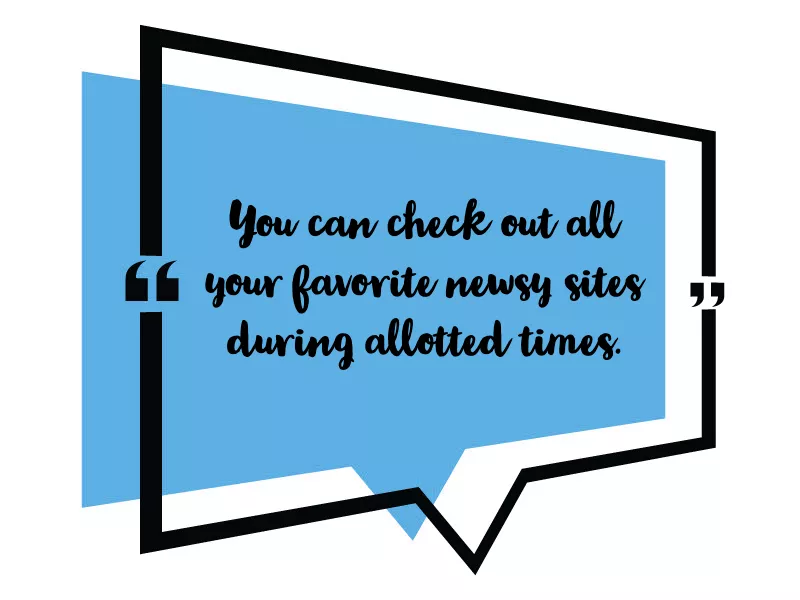
Once that’s become routine, we suggest you take some time to reflect on what feels like reasonable smartphone usage while parenting. With baby in tow, would you like to plug in for 15 minutes every three hours? How about for 10 minutes every hour? Or maybe you want to do all your catch-ups when the baby naps or goes to sleep (hopefully) for the night. There isn’t one right answer here — it’s about what you think is desirable and doable.
A good way to facilitate the practice of stepping back is to turn off your pop-up news alerts. You can check out all your favorite newsy sites during your allotted times. If you like, you can even set alarms on your phone to go off when it’s time to read the news and shut down internet access during off-times.
Just remember that life with a baby is rarely predictable. You may find yourself in the middle of an epic diaper blowout when it’s officially your time to read the news. If both you and your husband happen to be home when that happens, it’s a great time to tag out and go get your fix.
You got this!
Love,
FamilyMinded
Is My Kid a Bully?
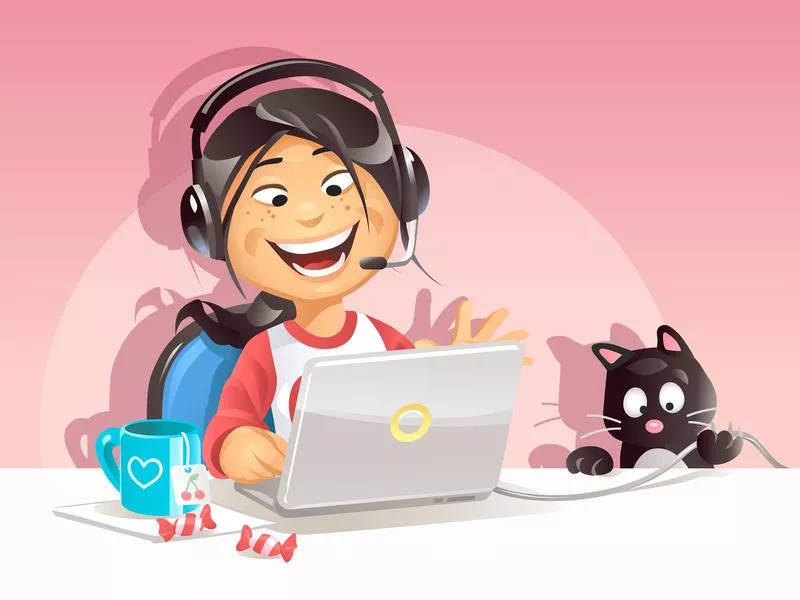
Getty Images
Dear FamilyMinded,
My 11-year-old daughter has been accused of bullying on social media. I saw some of the posts on Facebook, and they’re not good. They include public name calling, etc. I’m ashamed and not sure how to approach her or the other parents upset by my child.
Signed,
Afraid My Kid’s a Bully
The Response
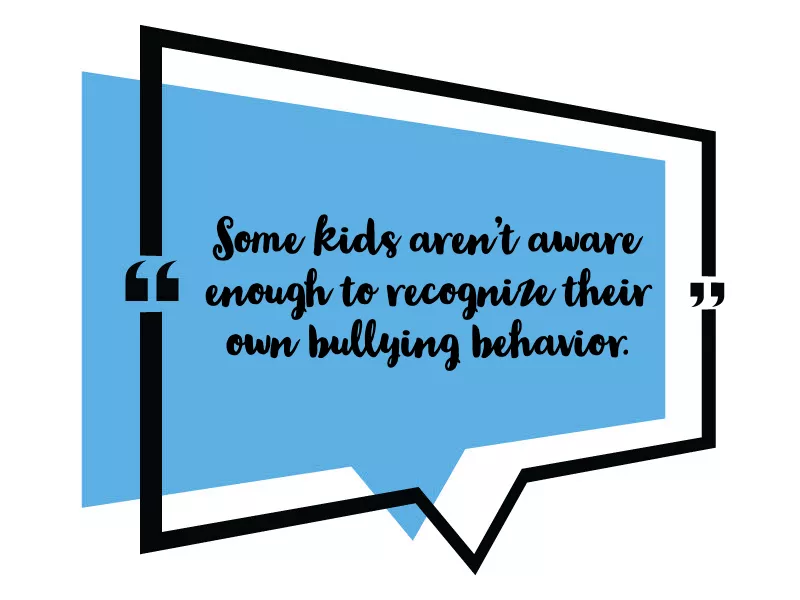
Dear Afraid My Kid’s a Bully,
What a tough predicament. As uncomfortable as the situation is, you do have to address it — head-on, and quickly. It’s our experience that some kids aren’t aware enough yet to recognize their own bullying behavior, and may think that what they’re doing is just playing around, being funny, etc. For hers and others’ sakes, you’ll have to be the one to parse this out and explain what is and isn’t considered online bullying. To help, here’s a media guide by Health and Human Services. But to cut to the chase, name calling is certainly considered bullying, and it must stop.
The Advice
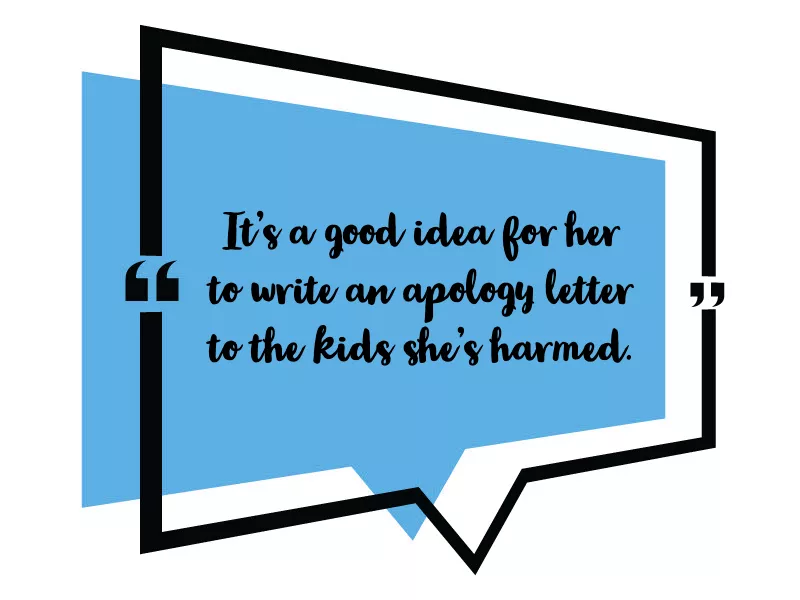
With all the compassion you can muster — even though you’re justifiably upset — set aside time together without siblings or friends, or anyone else that might tease or stigmatize her later on. The first step is for the two of you to systematically erase all of the hurtful comments from her social pages. While doing this, help her understand how she might feel if the roles were reversed — say if another girl were to call her fat on social media — and what kind of impact that might make on her life at school and with her friends.
If you feel that the message hasn’t quite landed yet, using other media can be an effective way to get the message to tweens and teens. “A Girl Like Her,” “Wonder” or the now-classic “Mean Girls” are all films that help kids understand the emotional impact of bullying. At that point, if your daughter’s ready, it’s a good idea for her to write an apology letter to the kids she’s harmed with her words, and to their parents.
And last, let her know that you understand how being human means making mistakes. If you normalize the fact that everyone messes up sometimes, it becomes less of an isolating experience for her — and hopefully makes it less likely to be repeated in the future. We also recommend monitoring her social accounts and checking in frequently to see how things are going online.
You got this!
Love,
FamilyMinded
A YouTube Guru?
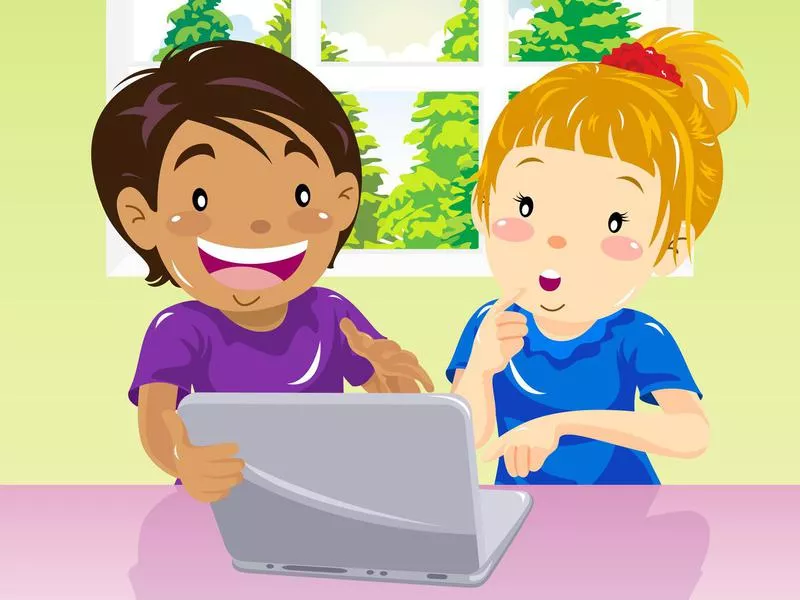
Getty Images
Dear FamilyMinded,
My eight-year-old son is seriously into making movies. He puts together impressive stop-motion films with LEGOs and is even starting to direct his friends in short films. Now he wants to share his creations with the world. Is it OK for him to start his own YouTube channel?
Signed,
Proud But Cautious
The Response
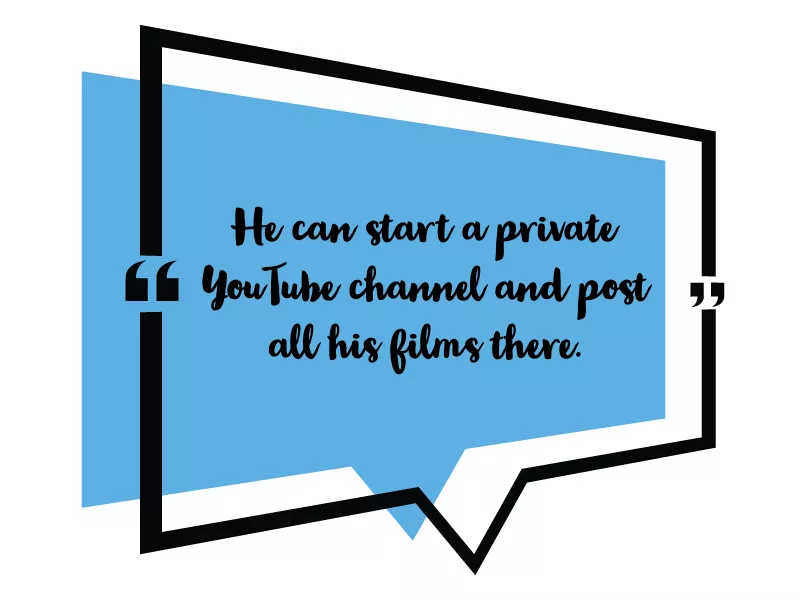
Dear Proud But Cautious,
What a cool hobby! As we see it, you have two good options to help your son unleash his cinematic brilliance on the world. If he’s happy with a limited audience made up of people he already knows, then you and he can start a private YouTube channel and post all his films there. In the case of a private channel, you needn’t worry too much about nasty commenters (which YouTube is rife with, unfortunately) or randos trying to interact with your kid. However, your son won’t have the ability to reach nearly as many people with his art, and so he may not be satisfied with this approach.
The Advice
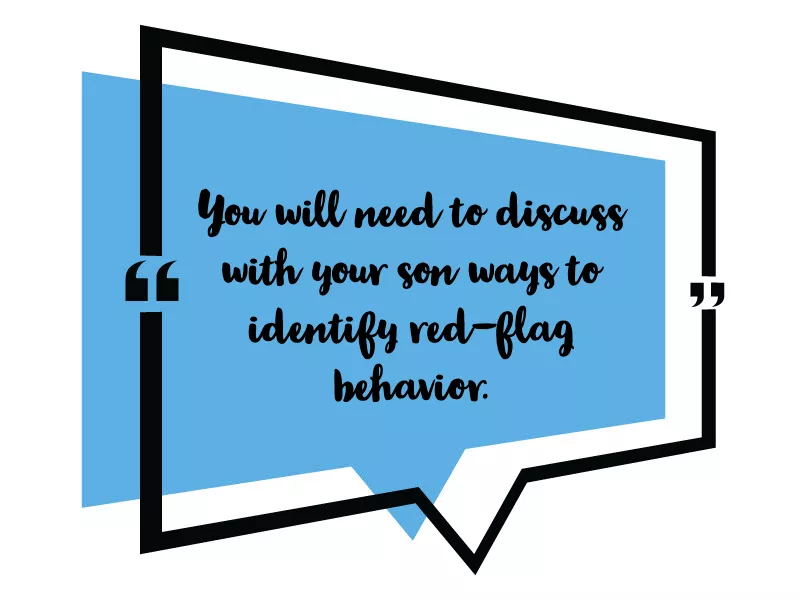
In that case, a second option is for you to start the YouTube account, connect it to a brand-new email address that only you have the password to, and monitor his posts and his access — at least for a while. Remember not to insert his full name in the channel’s title: Something non-personal like “Stop Motion Mania,” or whatever suits him, is a much better choice.
This will at first be a time-intensive proposition for you as a parent, but it lets you protect him. As he ages and grows more media savvy, he can gradually take over the account and the email address (which is why we recommend tying the channel to a new, separate email — not your own personal address).
As part of helping him graduate to the next level of running his own YouTube channel, you’ll need to teach him some social media literacy, including the fact that 1) some people on the internet aren’t kind, 2) some don’t have other people’s best intentions at heart, and 3) some people aren’t even people at all, but bots. You will also need to discuss with your son ways to identify and tell you about any red-flag behavior he witnesses, such as someone trying to obtain personal information about his age, his interests or where he lives. Also, for the sake of protecting other kids who may appear in his movies, make sure that your son’s friends’ parents are OK with their child appearing on his YouTube channel.
Good luck to your budding Spielberg!
You got this!
Love,
FamilyMinded
Need advice? Please send any parenting questions to editor@familyminded.com.